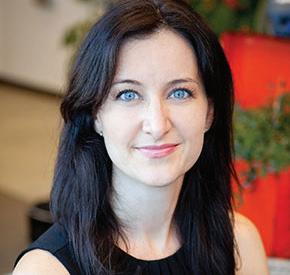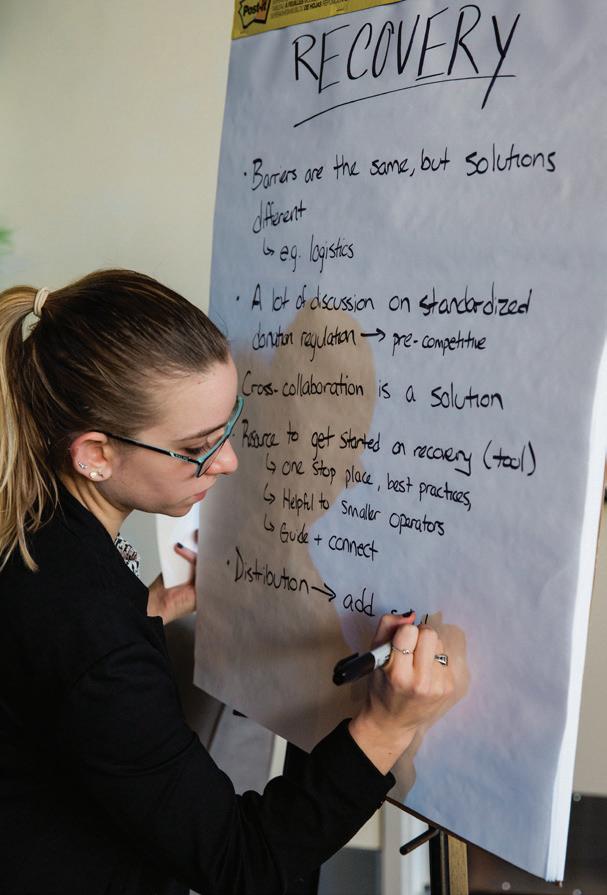
3 minute read
The Year at a Glance
by ReFED
Big Wins in 2019 THE YEAR AT A GLANCE
THE FOOD WASTE MOVEMENT IS GAINING MOMENTUM
2019 marked the transition from commitment to measurement and finally, action, for ReFED and the sector.
REFED WAS FEATURED IN OVER 100 MAJOR NEWS STORIES IN 2019
Inside the Booming Business of Fighting Food Waste
Tackling Food Wastage can be a $2.5 Trillion Market Opportunity for Businesses
New Washington State Bill Sets 2030 Food Waste Goal
Change Food Production and Stop Abusing Land, Major Climate Report Warns
Investors are Betting a Small Packet Can Help Reduce Food Waste
Systemic thinking is necessary to turn food waste into economic growth, hunger alleviation, improved health, and environmental stewardship.
“The moment is here, which is to say that there’s enough awareness. I believe in the power of business to lift society up, and it’s very encouraging to see businesses that are tackling food waste in different ways: people putting capital at risk, putting their time at risk, all in the service of a larger cause.”
Walter Robb Stonewall Robb Advisors

“We must engage with communities in understanding the barriers that exist, so that we can get the right food to the right place at the right time. We also need to use our voice to influence policies that will make a difference for people who are struggling to put food on their table.”
Ami McReynolds Feeding America

“As a physician who practiced for a number of years, I saw firsthand how not having enough access to healthy food impacts patients directly. It’s important to connect land use planning and food systems planning in order to divert food waste to those facing food insecurity and enable resilient and healthy communities.”
Elizabeth Baca, MD, MPA Deloitte

“What we want to do is affect the trajectory of climate change. Eliminating food waste is like using energy more efficiently. It’s usually the easiest and cheapest form of progress that you can make, and it usually pays for itself.”
Philip Duffy, PhD Woods Hole Research Center
In 2019, we built the foundation and relationships for our future impact through all of our work: Data and Insights, Capital and Innovation, Stakeholder Engagement, Operations, Communications, and Development.

Achieved 501(c)(3) status, solidifying ReFED as an independent nonprofit

Hosted the 2019 Food Waste Summit in San Francisco, attracting over 400 influential food system professionals
Welcomed new and returning team members: Dana Gunders, Nicole Sturzenberger, Vanessa Mukhebi, Angel Veza, Nathan Lohrmann, and Parker Hughes


Released GHG Impact Methodology in collaboration with Ohio State University and Walmart, which is integrated into Project Gigaton, a Walmart supplier reporting platform that represents over 25% of grocery retail market share across the food industry
Launched the build of the ReFED Insights Engine, including key partnerships with Nielsen, Deloitte, and a robust Expert Network

Secured anchor funding for the Insights Engine through a $2 million grant from The Kroger Co. Zero Hunger | Zero Waste Foundation
Launched ReFED’s new Stakeholder Engagement Structures, including the new Advisory Council and Accelerator and Insights Engine Expert Networks


Accelerated 10 nonprofit food recovery solutions to demonstrate a path to doubling the amount of healthy food available to the 40 million Americans facing food insecurity Hosted Innovator Excellence Day, engaging over 255 attendees through 16 food waste innovator pitches, over 600 curated speed-dating sessions, and The Kroger Co. Zero Hunger | Zero Waste Foundation’s Innovation Fund $50,000 Portfolio Pitch Competition

Advised The Kroger Co. Zero Hunger | Zero Waste Foundation, representing a combined projected impact of 7.2-million-pound reduction in food waste








